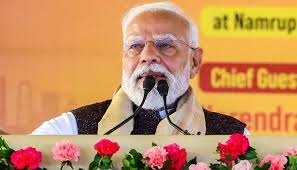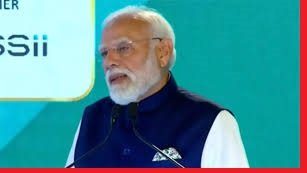The recent Competition Commission of India (CCI) order on Amazon that has halted the e-commerce giant in its tracks on its dream of extending its footprints in the bricks and mortar stores-scape as well chiefly by acquiring Big Bazaar chain has had the commentariat cluck-clucking over the smoke and mirrors tactics adopted by the e-commerce giant. But the larger message for economists and policy wonks is that Amazon sees immense potential in bricks and mortar stores.
Walmart
Walmart, the US bricks and mortar giant made its mark in India by acquiring Flipkart the Indian e-commerce major (its cash and carry stores for wholesalers are not for the masses). That flummoxed the observers because its forte back home has been brick and mortar stores for the masses and not e-commerce. So, both Walmart and Amazon, arguably the leaders in their respective niche areas concede that e-commerce and brick and mortar stores can go hand in hand.
The major FDI norm on multi-brand retailing is a foreigner can invest only 51 percent at the maximum in the Indian business’s equity which means perforce he will have to find an Indian joint venture partner for the remaining 49 percent stake. The other major norm is he will have to invest at least $100 million out of which 50 percent at least must be in backend infrastructure like cold storage to facilitate farm to fork business model. Indian businesses are not hemmed in by any such restrictions. So, the question that naturally springs up is why Indian businessmen haven’t thought big and started such stores nation-wide.
To be sure we have more, Spencers, Big Bazaar etc. but they are by no stretch of imagination stores in the mould of Walmart one comes across in the US where one can shop for all items under its capacious roof. Apart from being pygmies in contrast, they have not beckoned customers with nothing to differentiate them from the ubiquitous mom and pop stores except perhaps in self-service and cleanliness.
E-Commerce Platforms
E-commerce platforms might promise quick delivery thus indulging those who do not want to bestir for shopping either out of indolence or out of physical disability including advancing years but the ultimate in shopping is going to a giant store with a shopping list for the week and buying both perishables and durables conveniently and economically. Direct buying from the manufacturers cuts the middlemen and their commission.
The cost cutting potential of direct buying is so immense that it not only renders middlemen redundant but also considerably diminishes the role of salesmen employed by the manufacturer. That salesmen of FMCG companies, Reckit, HUL, Colgate etc. are up in arms against Jiomart tells the poignant tale of how direct selling can bring about tectonic changes in the world of selling.
JioMart
Jiomart buys direct and passes on a substantial part of the lower price it has wangled to its e-commerce customers many of whom lo and behold mom and pop stores. This incidentally is also the business model of Walmart. So basically, both e-commerce stores and brick and mortars store have considerably reduced marketing expenses of manufacturers. By the way, direct buying would also insulate benighted farmers from middlemen who strut the country’s farms cheating both the producers and consumers.
E-Commerce Portals
however, have to spend a lot more on distribution—packing and delivery. That a Chennai buyer of Amazon gets his item from Gurgaon shows the extent of wastage inevitable in its business model though the customer herself has nothing to lose except that she has to bide her time for the item to reach her.
Apart from the much higher packing and delivery expenses, the high burn rate as well as the constant suspicion it arouses in the minds of the government that it is not adhering to the marketplace model but is brazenly following the inventory model frowned upon by our FDI rules, shows that its business model is not sustainable in the long run. Perhaps that is the reason why Amazon is keen on getting into bricks and mortar business as well.
It is not beyond the Indian business houses to set up giant bricks and mortar stores where one can see what one is buying. In case of clothing and shoes, try and buy renders the dreaded prospect of returning practically nonexistent. Employment opportunities for blue collar workers are more in a vast store. They can in fact use their stores to sell online as well. The two are not cast as adversaries but can harmoniously coexist.
Delivery within ten minutes, as it were, may be the USP of e-commerce platforms but that incidentally also makes the delivery boys reckless on roads. (cnbctv18)













